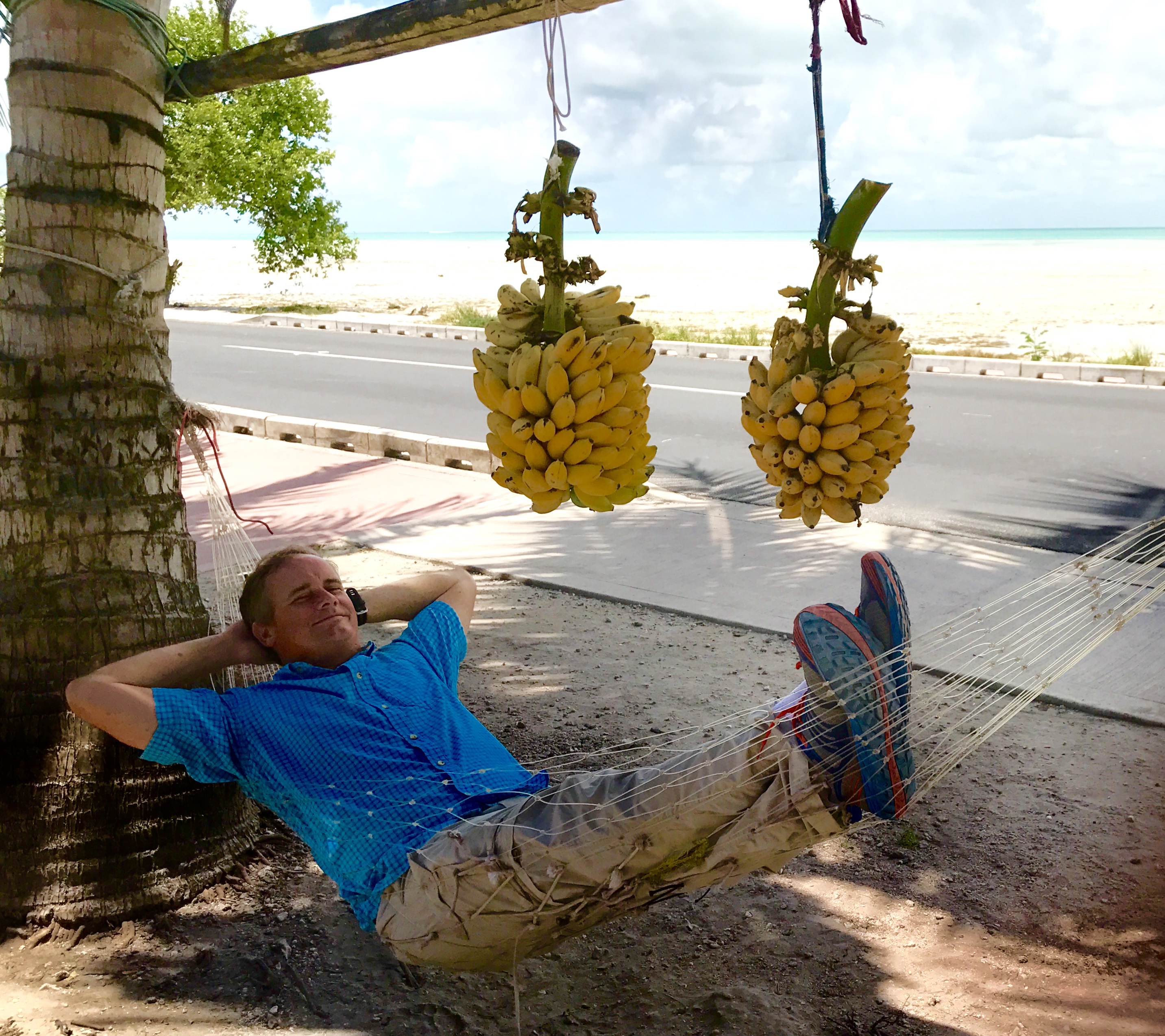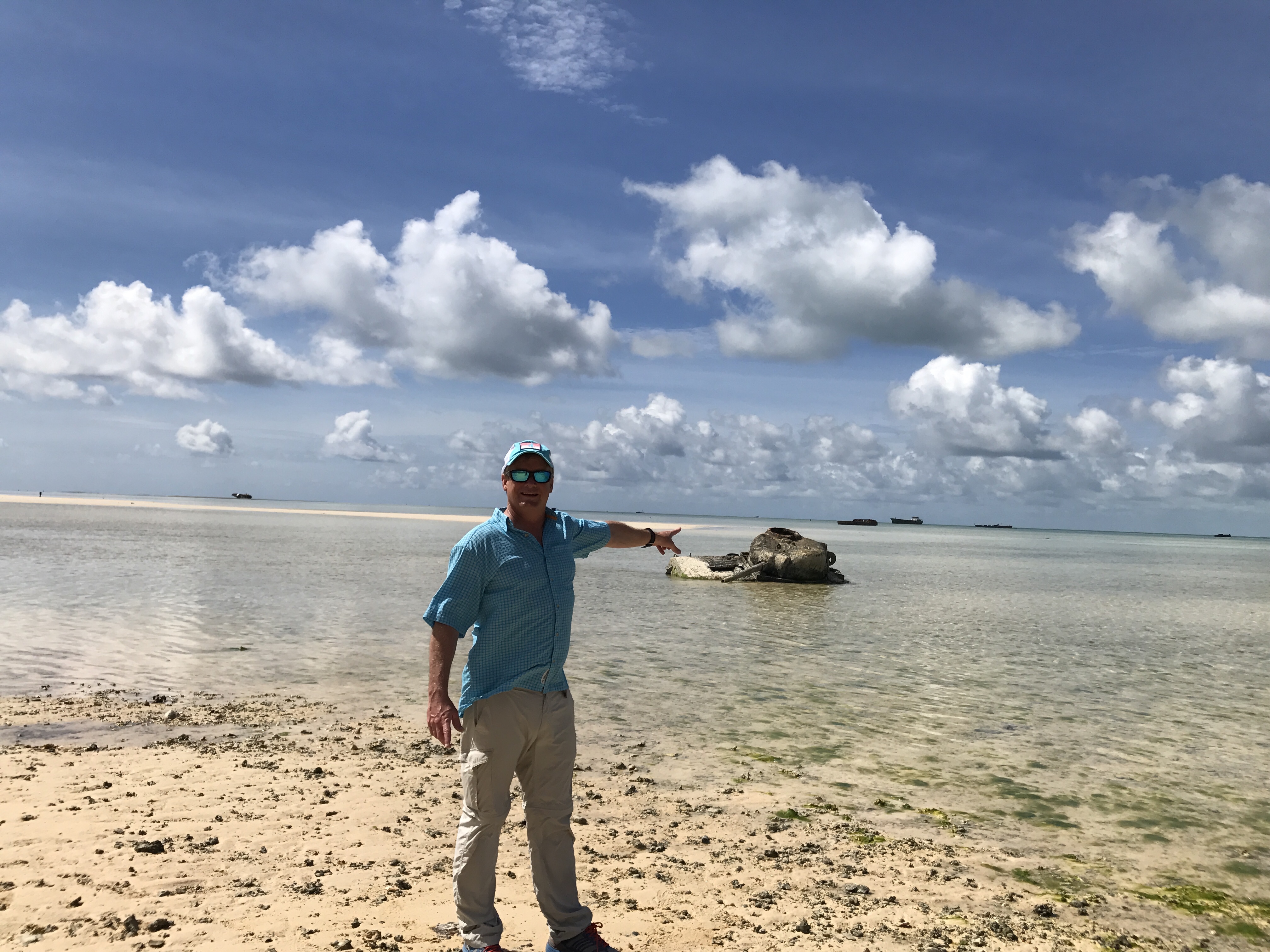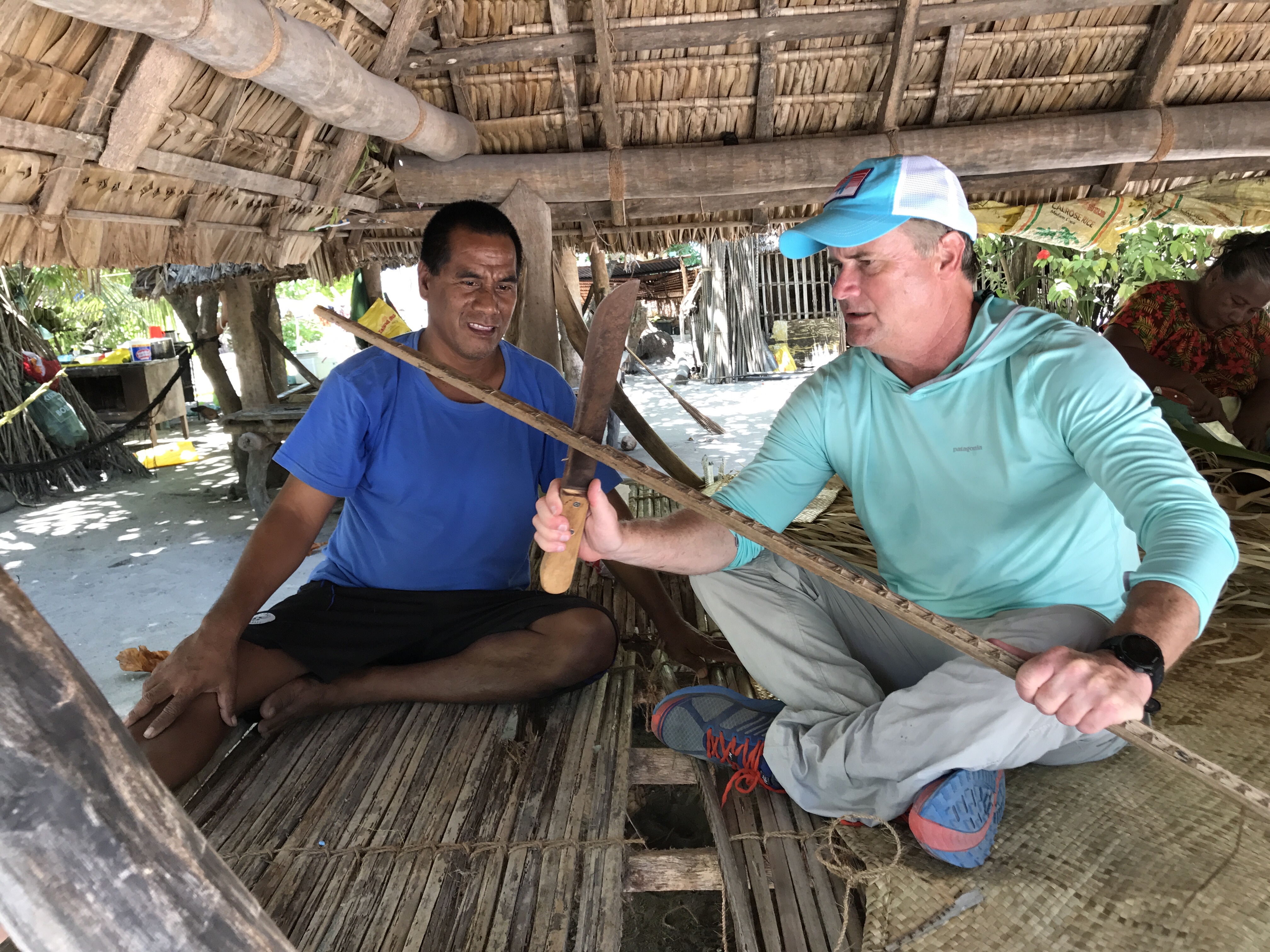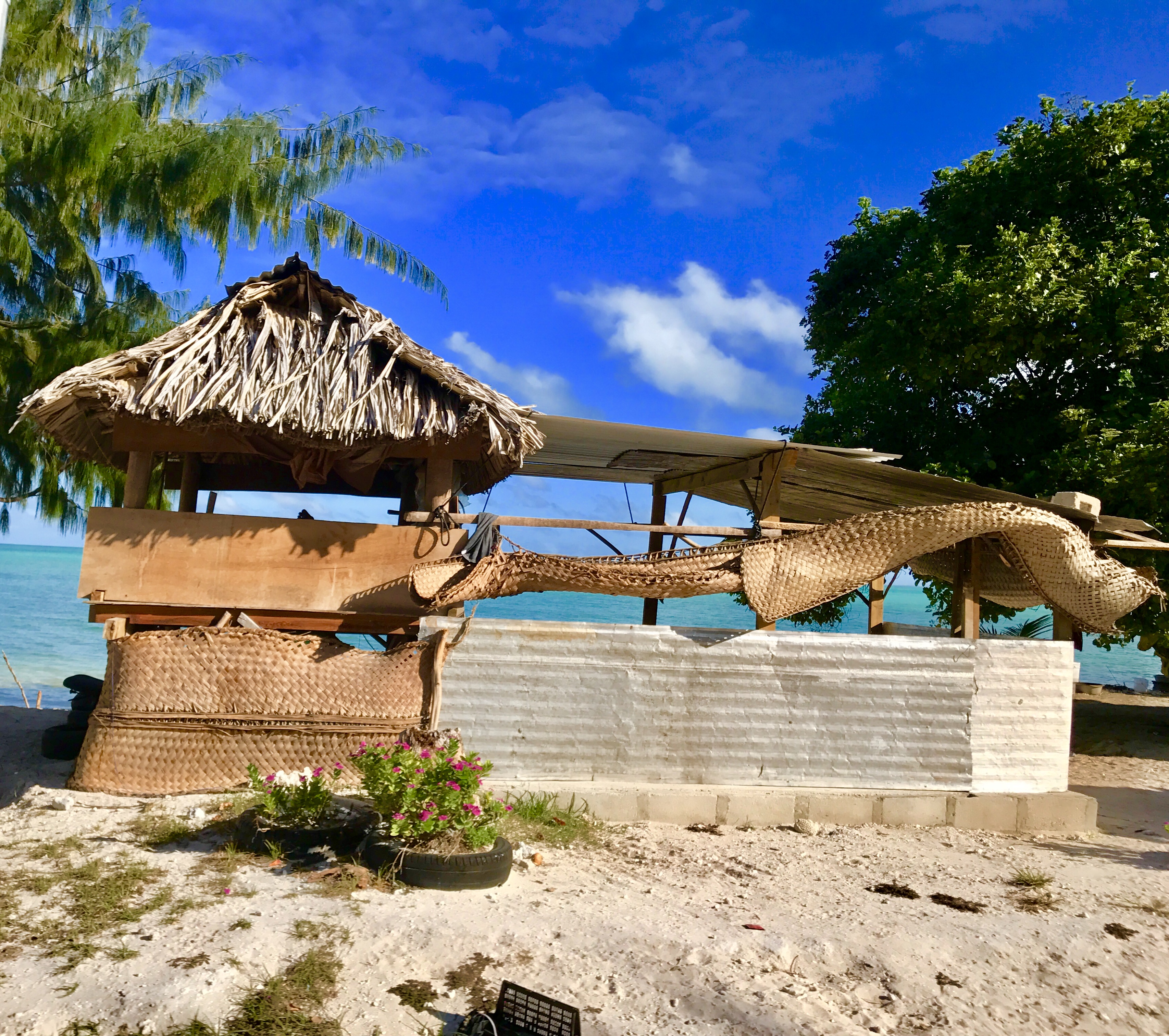

Country Information:
Hot, humid, and tropical Kiribati was founded in 1979. It is made up of 33 coral atolls and islands along the equator. The capital is South Tarawa, and the languages spoken here are English and Kiribati. Most of its islands have no inhabitants, making them great places for fishing, diving, and bird-watching. About 110,000 people live in Kiribati and its main religions are Christianity and other Christian denominations, and its main exports are copra followed by coconut, fish, and seaweed. Even though the country is small, its EEZ (Exclusive Economic Zone) is larger than India. It is 17 hours ahead of EST.
In 2017, I visited Tarawa, which is famous for the Battle of Tarawa during WWII, killing almost 6,400 soldiers in less than 3 days. This was the first WWII battle in the central Pacific region started by the U.S.
An amazing fact is that it is the only country that touches all four hemispheres in the world!
Jim’s Perspectives:
Ah, Kiribati, Kiribati, Kiribati. What to say about ye? For those in the know, that doesn’t rhyme … because a unique fact about Kiribati is that it is actually pronounced Kiribas (keer-e-boss), as the letters “ti” are pronounced as “s”, and paying homage to the country’s poet laureate story:
“Not everyone knows the poet Daniel Wilson, 21, yet he could teach the academic fuddy-duddies a thing or two about poetry. For one thing, few academics even know about the South Pacific island nation of Kiribati, but Wilson could tell them. Wilson’s is an inspirational story about the creative imagination, and even, if we stretch things a little, about how to give life on earth a fresh new start.
Daunted by the prospect of a boring summer job, Wilson perused an atlas until he found the little Micronesian island group. At about that moment the Muse hit him. He wrote to President Ieremia Tabai and, though unversed in verse, offered himself as the national poet of Kiribati. All he asked in return was a hut on the beach.
To Wilson’s surprise, the president responded from Bairiki on Tarawa, biggest of 33 islands, once a British territory known as the Gilbert Islands. President Tabai promised to build him a hut on the beach. No money was mentioned, but somewhere in the exchange Wilson received a poster of one of the lovelier female inhabitants of Kiribati. The weather is obviously benign and the inhabitants dress accordingly — so salary became less a priority.
The poem Wilson sent to wow and woo the Kiribati folks was, to say the least, a rush job — took him about five minutes, he said. Here’s part of it:
I’d like to live in Kiribati,
I feel it’s the country for me,
Writing poems for all the people
Underneath a coconut tree. …
I’d make them smile with words of verse
About all the things they see,
Which makes them feel so fortunate
To live in Kiribati.
The Kiribati folks congratulated him on the poem. Their enthusiasm probably reflects the fact that their republic ranks 181 out of 191 in the world literacy ranking.
“There’s not a lot there. I’ll probably just write about palm trees and coconuts and the local girls,” Wilson said with poetic pragmatism.”
This is a place of unmistakable beauty. When you think of an island with varying hues of blue water, this is it. Kiribati is a 30 or so mile strip of land rarely more than 100 yards wide, with the Pacific on one side and the “lagoon” on the other. The interplay of the royal blue/green water and light blue sky was mesmerizing. However, visiting this country is like going back in time 100 years. It’s an adventure traveler’s paradise … however regular tourists would find it to be a hell-hole.
When you land at the airport, there are dozens of people waiting to greet arriving passengers, which I found charming. Equally so, was that to go south toward downtown Tarawa, you had to drive next to the runway. The one hour drive from the airport to lodging (I won’t call where I stayed a hotel), was eye-opening to say the least. We stopped and took pics of some small oceanfront homes, that had neither electricity nor plumbing. Rule #1 in Kiribati … when you see someone lounging in the water … don’t say hello because they are likely not swimming, LOL.
Men and women were dressed in their traditional skirts, called lava lavas, and most walked barefoot. BTW, their feet are extra-wide and heavily calloused. These are Melanesians, as opposed to Micronesians or Polynesians, who descended from islands to the Far East, likely Indonesia or Taiwan. However this equatorial island is so in the middle of no where, that it has remained largely unbothered by traditional colonial powers. Few natural resources and searing heat also might have had something to do with it.
The highlights of my time in Tarawa:
- Visiting the village of Abadea, and learning how to make rope from palm trees, making a roof from the bandanas tree, and repairing the floor of a traditional hut.
- Visiting the WWII monuments, that are rotting away due to neglect. It is appalling that the government has not done more to protect and preserve them. For example, some families were living in a Japanese bunker, and piles of trash line the war memorial. To be fair … trash is everywhere on this island … not just at the war memorial!
In summary, to adequately describe Kiribati, here is what you need to know: The pace here is very laid back and slow. Most people lay around in the huts, hugging their kids, tending to their pigs, walking barefoot …slowly, and they do little else. That’s it. End of story. There is little commerce going on. A few shops and roadside huts. Mormon churches are everywhere.
I stayed at the George Hotel in Betio (pronounced Beso), which was a mistake. Not only was it far away from everything, it is located next to a nightclub. Oh, and it’s a dump. The best hotel on the island is the Utieri Motel. Best BY FAR! The grounds are well-kept and the rooms are spacious. The Utieri is also walking distance to most everything.





